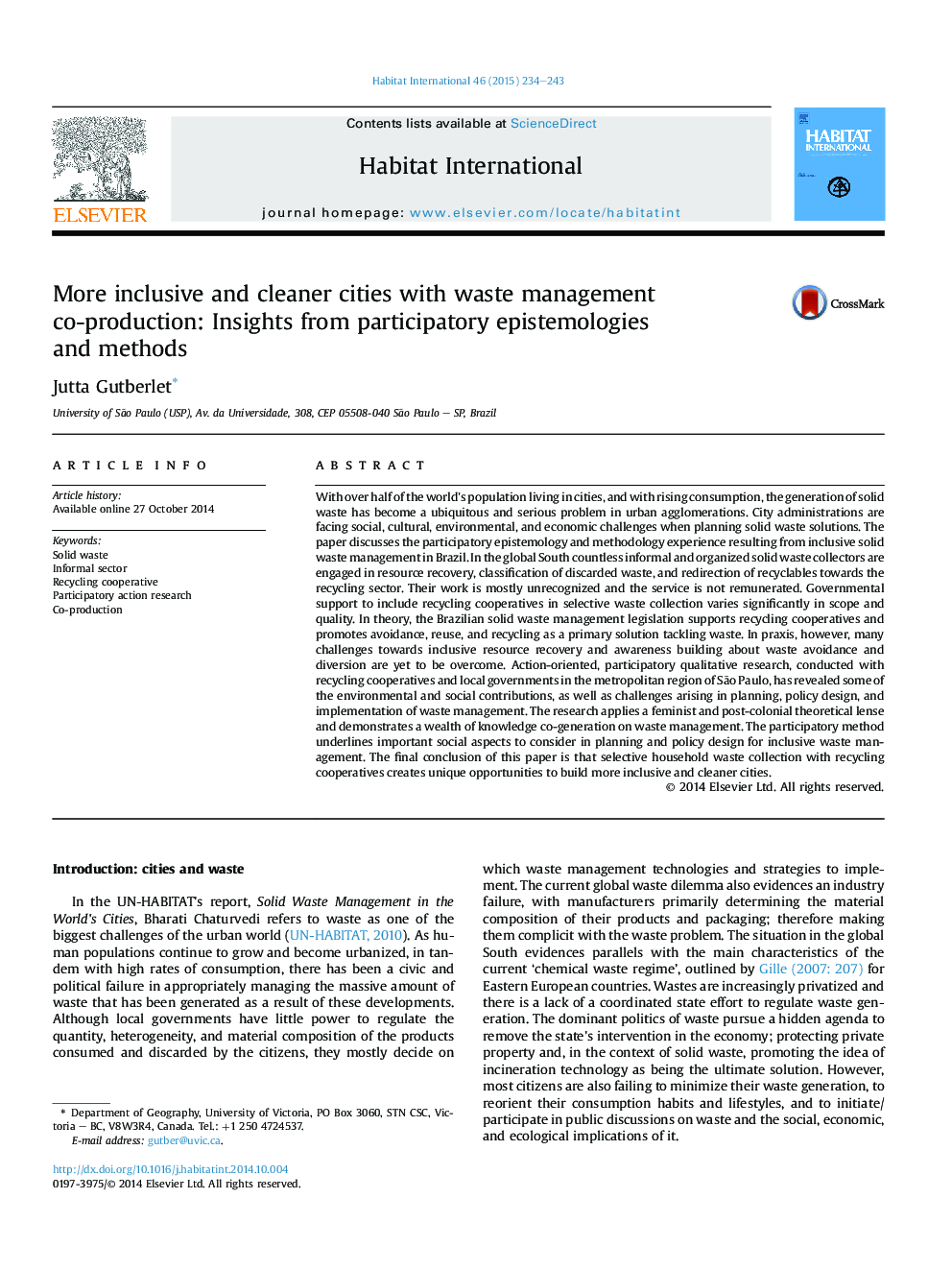| کد مقاله | کد نشریه | سال انتشار | مقاله انگلیسی | نسخه تمام متن |
|---|---|---|---|---|
| 1047911 | 1484497 | 2015 | 10 صفحه PDF | دانلود رایگان |
• Solid waste embodies a multidimensional urban challenge, requiring a plural, intersectoral, interdisciplinary, and integrated approach.
• In-depth action research experiences with recyclers in Brazil demonstrate improved municipal solid waste management.
• Participatory sustainable waste management enables co-production in solid waste management.
• Multi stakeholder platforms and deliberative forums are useful for creating an inclusive waste management praxis.
With over half of the world's population living in cities, and with rising consumption, the generation of solid waste has become a ubiquitous and serious problem in urban agglomerations. City administrations are facing social, cultural, environmental, and economic challenges when planning solid waste solutions. The paper discusses the participatory epistemology and methodology experience resulting from inclusive solid waste management in Brazil. In the global South countless informal and organized solid waste collectors are engaged in resource recovery, classification of discarded waste, and redirection of recyclables towards the recycling sector. Their work is mostly unrecognized and the service is not remunerated. Governmental support to include recycling cooperatives in selective waste collection varies significantly in scope and quality. In theory, the Brazilian solid waste management legislation supports recycling cooperatives and promotes avoidance, reuse, and recycling as a primary solution tackling waste. In praxis, however, many challenges towards inclusive resource recovery and awareness building about waste avoidance and diversion are yet to be overcome. Action-oriented, participatory qualitative research, conducted with recycling cooperatives and local governments in the metropolitan region of São Paulo, has revealed some of the environmental and social contributions, as well as challenges arising in planning, policy design, and implementation of waste management. The research applies a feminist and post-colonial theoretical lense and demonstrates a wealth of knowledge co-generation on waste management. The participatory method underlines important social aspects to consider in planning and policy design for inclusive waste management. The final conclusion of this paper is that selective household waste collection with recycling cooperatives creates unique opportunities to build more inclusive and cleaner cities.
Journal: Habitat International - Volume 46, April 2015, Pages 234–243
